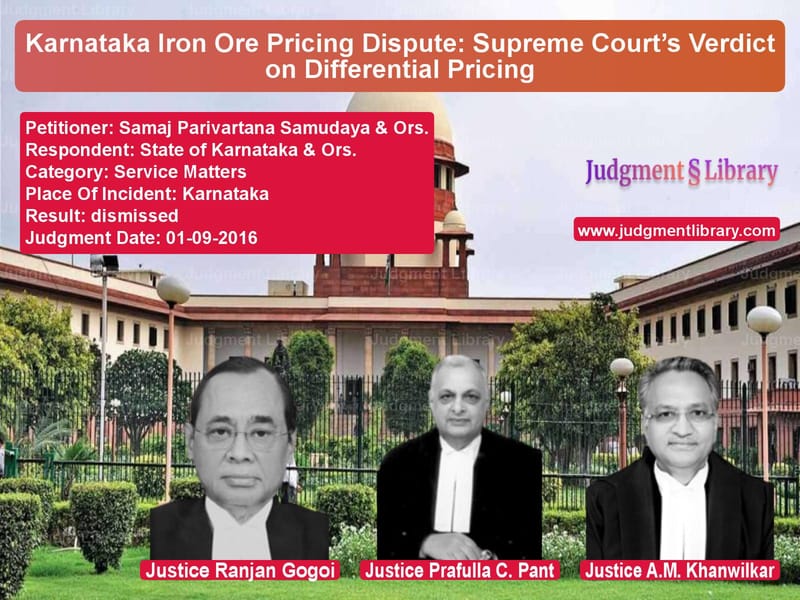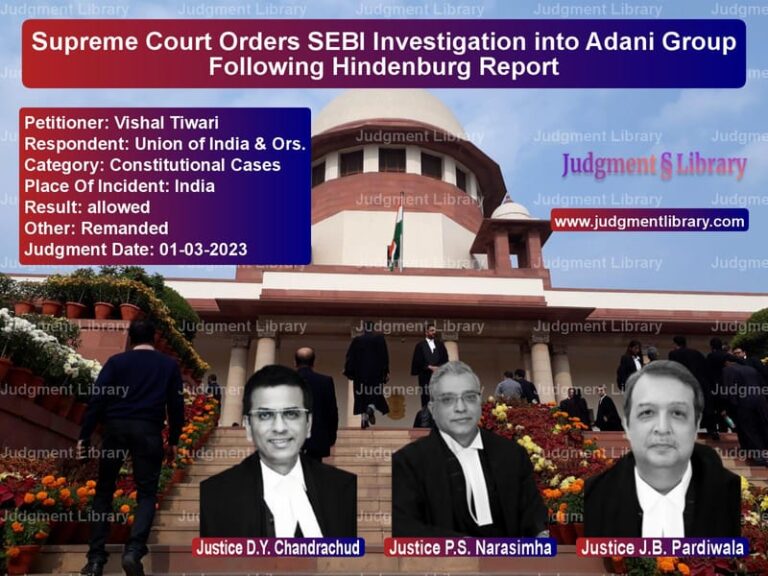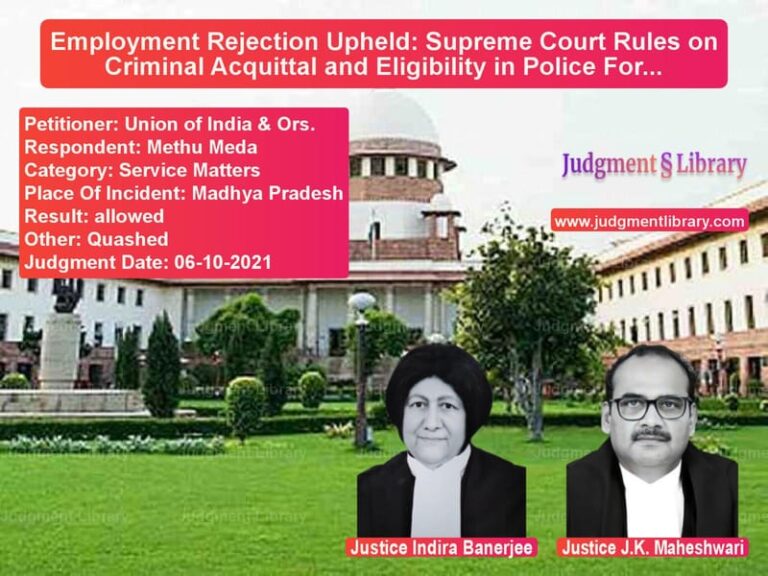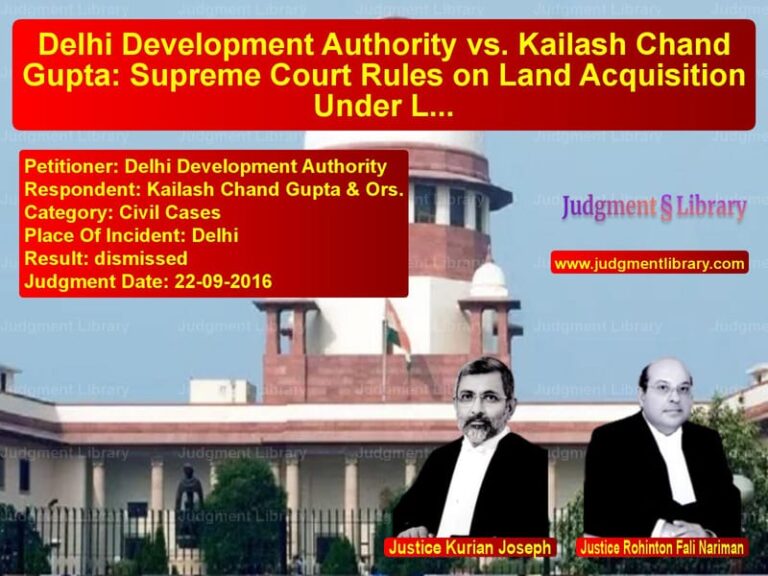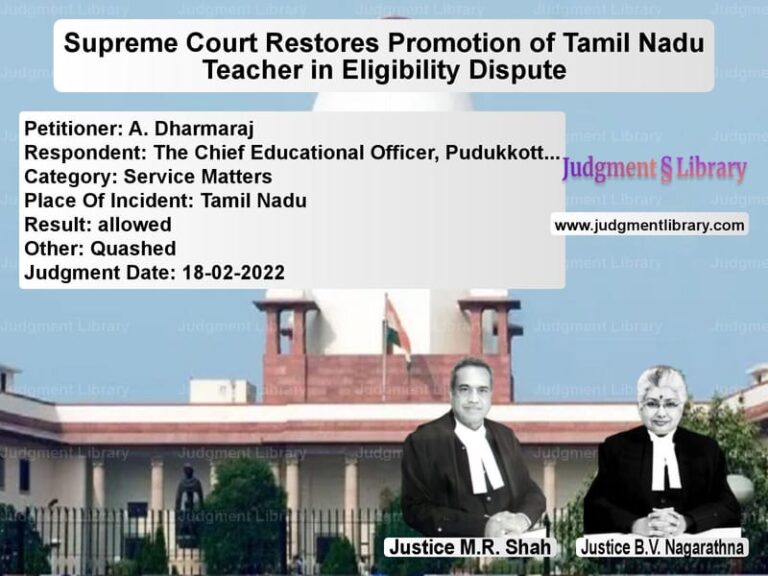Karnataka Iron Ore Pricing Dispute: Supreme Court’s Verdict on Differential Pricing
The Supreme Court of India recently ruled on a critical dispute concerning the pricing mechanism for iron ore in Karnataka. The case revolved around the Karnataka Iron and Steel Manufacturers Association’s challenge to the National Mineral Development Corporation (NMDC) over its decision to adopt a differential pricing mechanism for iron ore sales in Karnataka.
Background of the Case
The Karnataka Iron and Steel Manufacturers Association filed an application seeking judicial intervention against NMDC’s alleged unfair pricing mechanism. The primary reliefs sought were:
- Prohibiting NMDC from adopting a differential pricing mechanism in Karnataka.
- Ensuring that the floor price of iron ore is fixed based on realistic market conditions.
- Preventing NMDC from taking undue advantage of the iron ore shortage in Karnataka.
The association argued that NMDC had previously followed a Pan-India uniform pricing model but, since April 2016, altered its approach by imposing higher floor prices in Karnataka compared to other states like Chhattisgarh.
Arguments of the Petitioner (Karnataka Iron and Steel Manufacturers Association)
The association contended:
- NMDC had consistently followed uniform pricing across India but later introduced differential pricing in Karnataka, which unfairly burdened steel manufacturers in the state.
- The price increase was arbitrary and resulted in higher production costs for local steel producers.
- NMDC was exploiting the scarcity of iron ore in Karnataka to increase profits.
- The Central Empowered Committee (CEC) should intervene and fix a reasonable floor price.
Arguments of the Respondent (NMDC and Karnataka State Government)
NMDC and the Karnataka government opposed the petition on the following grounds:
- Iron ore prices are determined by market conditions, and Karnataka’s pricing reflects higher demand in the region.
- The differential pricing mechanism was necessary to balance supply and demand.
- Despite higher iron ore prices in Karnataka, the overall cost of procurement and logistics was lower than in Chhattisgarh.
- Private leaseholders in Karnataka also influenced the market, making uniform pricing unfeasible.
Supreme Court’s Analysis and Judgment
The Supreme Court analyzed past orders and the principles governing iron ore pricing. It referred to its prior judgment in Samaj Parivartana Samudaya v. State of Karnataka & Ors., wherein the Court had ruled that base pricing decisions should be left to individual leaseholders.
Key Findings by the Court:
- The NMDC’s pricing policy was driven by market dynamics, not arbitrary decisions.
- Higher iron ore prices in Karnataka were justified due to logistical advantages.
- The Central Empowered Committee’s recommendation against differential pricing lacked legal backing.
- The regulatory framework for NMDC’s special dispensation should be reviewed separately at a later stage.
Supreme Court’s Verdict
The Supreme Court ruled against the Karnataka Iron and Steel Manufacturers Association and upheld NMDC’s pricing policy. The Court stated:
“The working of its leases by NMDC under the special dispensation, by itself, cannot be a legitimate ground for not resorting to a dual price mechanism if the same is dictated by market forces. There is nothing in the report of the C.E.C. to indicate otherwise. We, therefore, do not accept the said part of the recommendation of C.E.C.”
Regarding the concerns raised by Vedanta Limited, a lessee of a ‘B’ category mine, the Court observed:
“The inability of M/s. Vedanta Limited to sell the output from its leases, as expressed, could very well be because of the pricing patterns adopted by it. Inability to sell on account of higher prices cannot be a ground for export of the mineral, at least at this stage.”
Future Considerations
The Supreme Court clarified that while NMDC’s special dispensation for mining operations in Karnataka remains in force, its long-term validity will be reviewed separately. Additionally, any future decisions on allowing iron ore exports will be guided by regulatory norms rather than ad hoc rulings.
Conclusion
The Supreme Court’s decision reinforces the principle that pricing in the mineral sector should be market-driven unless there is clear evidence of exploitation or unfair trade practices. While the petitioners sought price regulation, the Court found no justification for intervening in NMDC’s pricing strategy. The judgment ensures that iron ore trade remains competitive while acknowledging the need for future regulatory oversight on NMDC’s special status.
Don’t miss out on the full details! Download the complete judgment in PDF format below and gain valuable insights instantly!
Download Judgment: Samaj Parivartana Sa vs State of Karnataka & Supreme Court of India Judgment Dated 01-09-2016-1741883663759.pdf
Direct Downlaod Judgment: Direct downlaod this Judgment
See all petitions in Employment Disputes
See all petitions in Public Sector Employees
See all petitions in Disciplinary Proceedings
See all petitions in Judgment by Ranjan Gogoi
See all petitions in Judgment by Prafulla C. Pant
See all petitions in Judgment by A M Khanwilkar
See all petitions in dismissed
See all petitions in supreme court of India judgments September 2016
See all petitions in 2016 judgments
See all posts in Service Matters Category
See all allowed petitions in Service Matters Category
See all Dismissed petitions in Service Matters Category
See all partially allowed petitions in Service Matters Category

